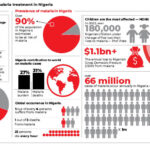Today is World Health Day, and this year’s commemoration also marks the 75th anniversary of the founding of the World Health Organisation (WHO).
Founded in 1948, WHO is the United Nations’ agency that connects nations, partners and people to promote health, keep the world safe and serve the vulnerable – so everyone, everywhere can attain the highest level of health and well-being.
It works with 194 Member States, including Nigeria, across six regions with more than 150 offices.
The organisation said in the past 75 years, there has been progress in protecting people from diseases and destruction, including smallpox eradication, reducing the incidence of polio by 99%, saving millions of lives through childhood immunization, decline in maternal mortality and improving health and well-being for millions more.
Five Kannywood actresses who dated their colleagues
What Tools Nigerian Players Can Use When GamStop is Unavailable
Dr Tedros Adhanom Ghebreyesus, WHO Director-General, said the history of WHO demonstrates what is possible when nations come together for a common purpose.
“We have much to be proud of, but much work to do to realise our founding vision of the highest attainable standard of health for all people. We continue to face vast inequities in access to health services, major gaps in the world’s defences against health emergencies, and threats from health harming products and the climate crisis. We can only meet these global challenges with global cooperation.”
He urged countries to take urgent action to protect, support and expand the health workforce as a strategic priority. Investments in education, skills and decent jobs for health need to be prioritised to meet the rapidly growing demand for health services and avert a projected shortage of 10 million health workers by 2030; primarily in low- and middle-income countries.
WHO says looking forward to the next 75 years and close to the turn of the next century, a renewed commitment to health equity will be the key to addressing future health challenges. “In the shadow of the COVID-19 pandemic, WHO’s roadmap to recovery includes an urgent paradigm shift towards promoting health and well-being and preventing disease by addressing its root causes and creating the conditions for health to thrive.’’
The WHO Regional Director for Africa, Dr Matshidiso Moeti said 75 years ago, WHO was founded with an ambitious objective, “the attainment of all peoples of the highest possible level of health.”
She said important achievements have been realised towards the aspirations of the leaders who founded WHO.
“Smallpox, which claimed an estimated 300 million lives in the 20th century alone, has been eradicated. Since 1974, millions of children have received life-saving vaccines and other child survival interventions. In 2020, the WHO Africa Region received certification for eradicating wild polioviruses.
“Scaling up essential health services and coverage with key interventions has yielded results. Between 2011 and 2021, new HIV infections in the WHO African Region were reduced by 44% and AIDS-related deaths by 55%. TB deaths in the region fell by 26% between 2015 and 2021. Simultaneously, healthy life expectancy in the African Region increased on average by 10 years per person between 2000 and 2019,” she said.
She said although most Member States in the African Region have integrated the attainment of Universal Health Coverage (UHC) as a central goal of their national health strategies, progress remains varied in translating this into equitable and quality services as well as increasing financial protection for the population.
Dr Moeti said, “About half of Africa’s citizens (48%) – some 672 million people – still do not have access to the health care they need. This results from weak health systems characterised by inadequate health infrastructure; poorly designed policies to limit financial barriers to health services; shortage of qualified health workers; inadequate access to quality medicines, medical products, and innovative technologies.”
Nigeria’s experience
The WHO representative to Nigeria, Dr Walter Kazadi Mulombo said the organization in collaboration with the government have been achieving notable strides in keeping the people safe and serving vulnerable population, in such areas as combatting infectious diseases, HIV treatment, reducing maternal mortality, increase in life expectancy, and supporting disease eradication.
He said some notable achievements recorded in Nigeria include the eradication of smallpox.
“In 1969, the WHO effort in Nigeria was historical during the interruption of the smallpox outbreak in the country. A key element in the eradication effort was the surveillance-containment strategy, which was first tested in Nigeria in 1966, and led to its adoption throughout the world.
“This paved a way for the 33rd World Health Assembly to adopt a resolution accepting the report of the Global Commission for the Certification of Smallpox Eradication in May 1980.
“Nigeria was certified Guinea worm free by WHO in December 2013. A recent milestone is Nigeria and the WHO AFRO Region were certified wild polio-free in August 2020, creating WPV free environment to children to prevent paralysis.’’
He said WHO Nigeria implemented Accountability Framework to monitor its 2000+ Polio workforce at field level. This has significantly contributed to the WPV eradication from Nigeria.
“Currently, WHO Nigeria is supporting the government in interrupting (circulating vaccine derived polio virus type 2) cVDPV2 outbreak. In 2022, 84% reduction in cVDPV2 was registered.
“In 2014, WHO supported Nigeria to successfully respond to the Ebola virus disease; making it a best practice that is widely cited in scientific cycles.’’
Similarly, WHO has been supporting the government across all levels to build the capacity of health workers to improve health resources and services provided in the country.
WHO’s role in tackling HIV
WHO’s Technical Officer in charge of HIV and Viral Hepatitis, Dr Funke Ilesanmi Odunlade said over 90 per cent of the people living with HIV in Nigeria has been discovered, and over majority of them has been placed on treatment. “This has been made possible because the country actually adopted the WHO treat all policy, which means everybody living with HIV is put on treatment and this has actually helped to increase the quality of life for people living with HIV.”
She said a notable feat of WHO and other partners support is the extension of services to the communities thereby providing access for women and children who don’t come to health facilities.
She said WHO worked with the government for inclusion of viral hepatitis in the immunisation schedule while with worked against polio.
Malaria vaccine introduction
Lynda Ozor, Malaria Programme Manager , WHO said Nigeria has witnessed reduction in malaria prevalence. “In 2010 the prevalence was 42 per cent, just in the space of less than 10 years, it had come down to 2021 that is unprecedented given the sheer size of the country. This could not have been achieved without the introduction of new tools and a combination of tools that work.”
She said malaria vaccine is the latest tool in the block and that Nigeria has applied for in the current window that is closing on April 19. “We’re hoping that by 2024 we will have the introduction of the malaria vaccine in the country,” she said.
She said with WHO’s support the strategic policy in Nigeria was now focused on everyone.
It is helping to address manpower shortage -Ojo
Dr Olumuyiwa Ojo said WHO recently came up with the new safeguards list a list of 55 countries (including Nigeria) that are most impacted by shortage of health workers. He said it calls for support for health workforce development and health system strengthening.
He said WHO’s support for the health workforce in the country helped enhanced access to care, ensured retention of manpower where they are needed most and also improved their training and remuneration.
Speaking on the impact of WHO, Prof Oyewale Tomori, a renowned virologist and public health expert said: “The health of the world would have been in a worse situation without the WHO. At least, none thinks anymore of the dreaded and terrible smallpox, now eradicated with WHO’s leadership guidance and coordination. Soon the world will be free of poliomyelitis, another disease slated for eradication, by the WHO.
“There have been improvements in standards of living….My generation survived by CHANCE…But with WHO, this generation has a CHOICE of several interventions for a longer better and healthier life. “
To fully attain the status of health within the next 75 years, he said, “very much more needs to be done, not just by the WHO, but especially by individual governments and communities. The challenges are multifactorial, far beyond what WHO alone can handle…Climate change, under funding of health systems and activities, social inequities, political inadequacy and irresponsibility. There is the need for an all-inclusive commitment.”
The Minister of Health, Dr Osagie Ehanire, thanked WHO for its support for Nigeria over the years.“ I want to congratulate the WHO on this 75th anniversary of active service to humanity and to thank WHO for supporting the entire health sector in Nigeria technically and financially these years.”

 Join Daily Trust WhatsApp Community For Quick Access To News and Happenings Around You.
Join Daily Trust WhatsApp Community For Quick Access To News and Happenings Around You.


